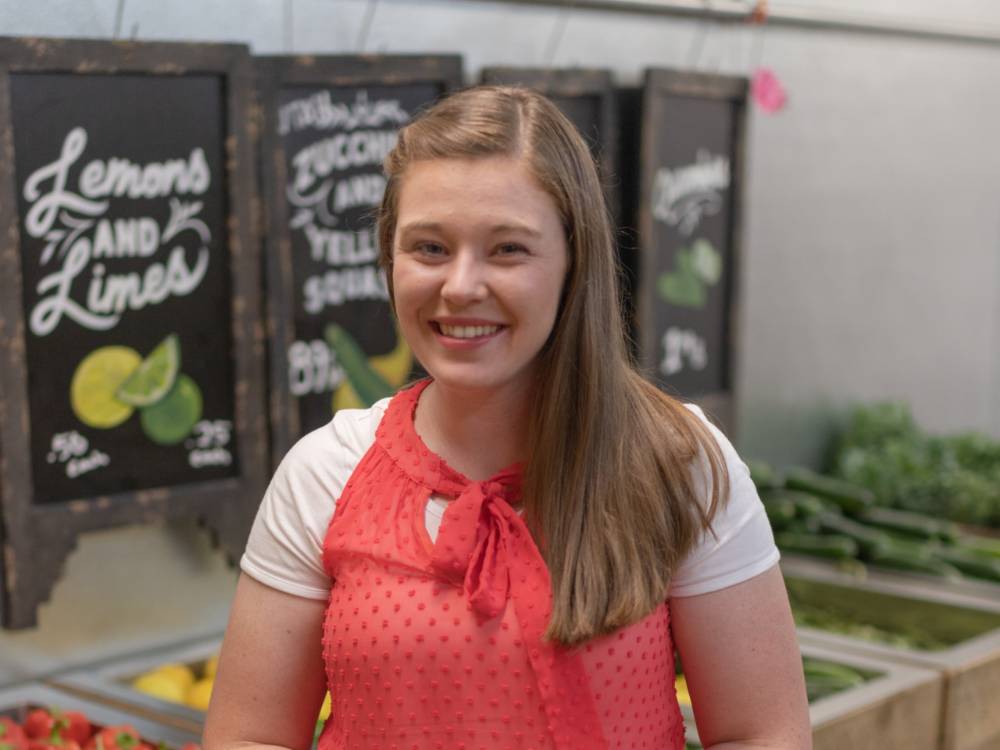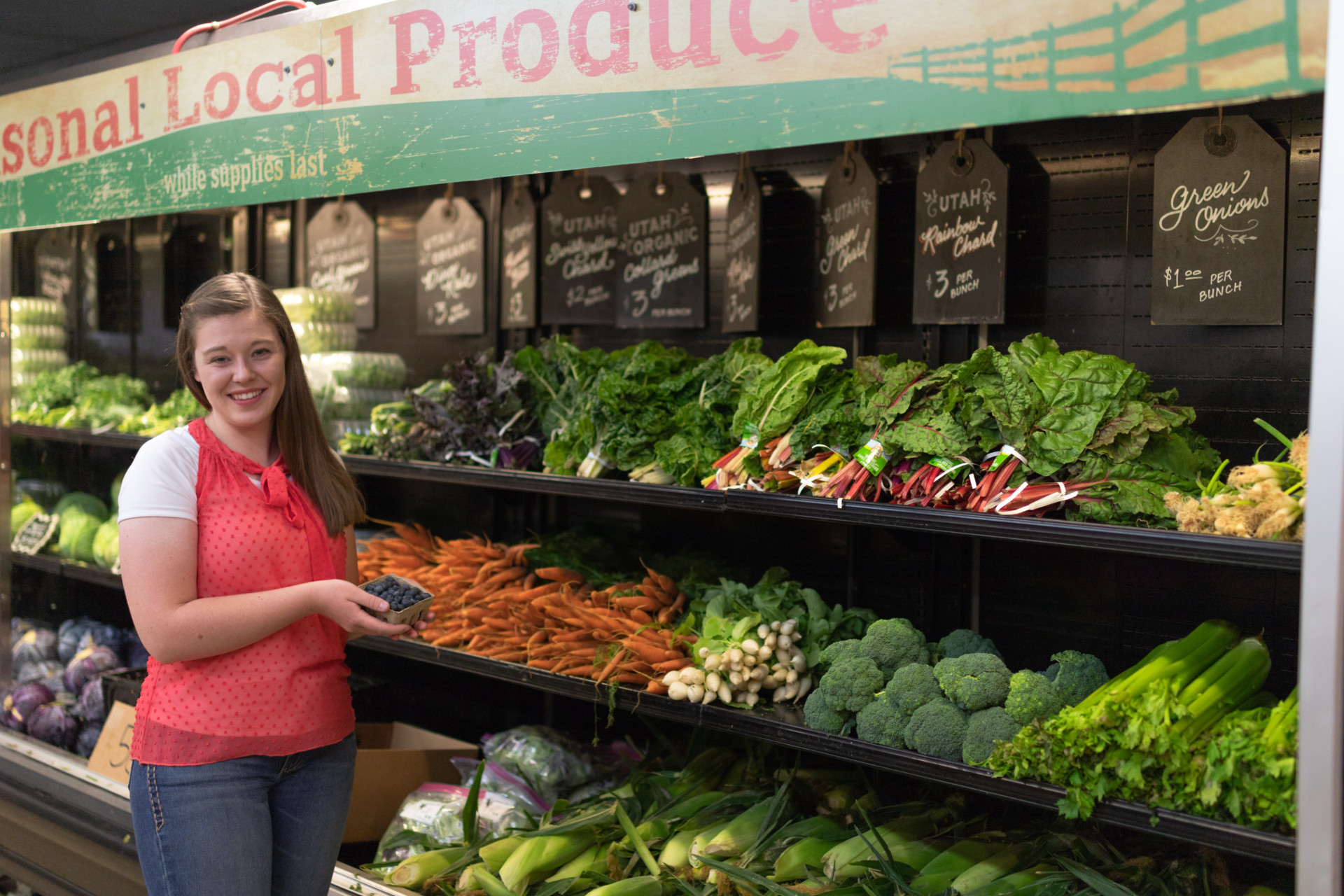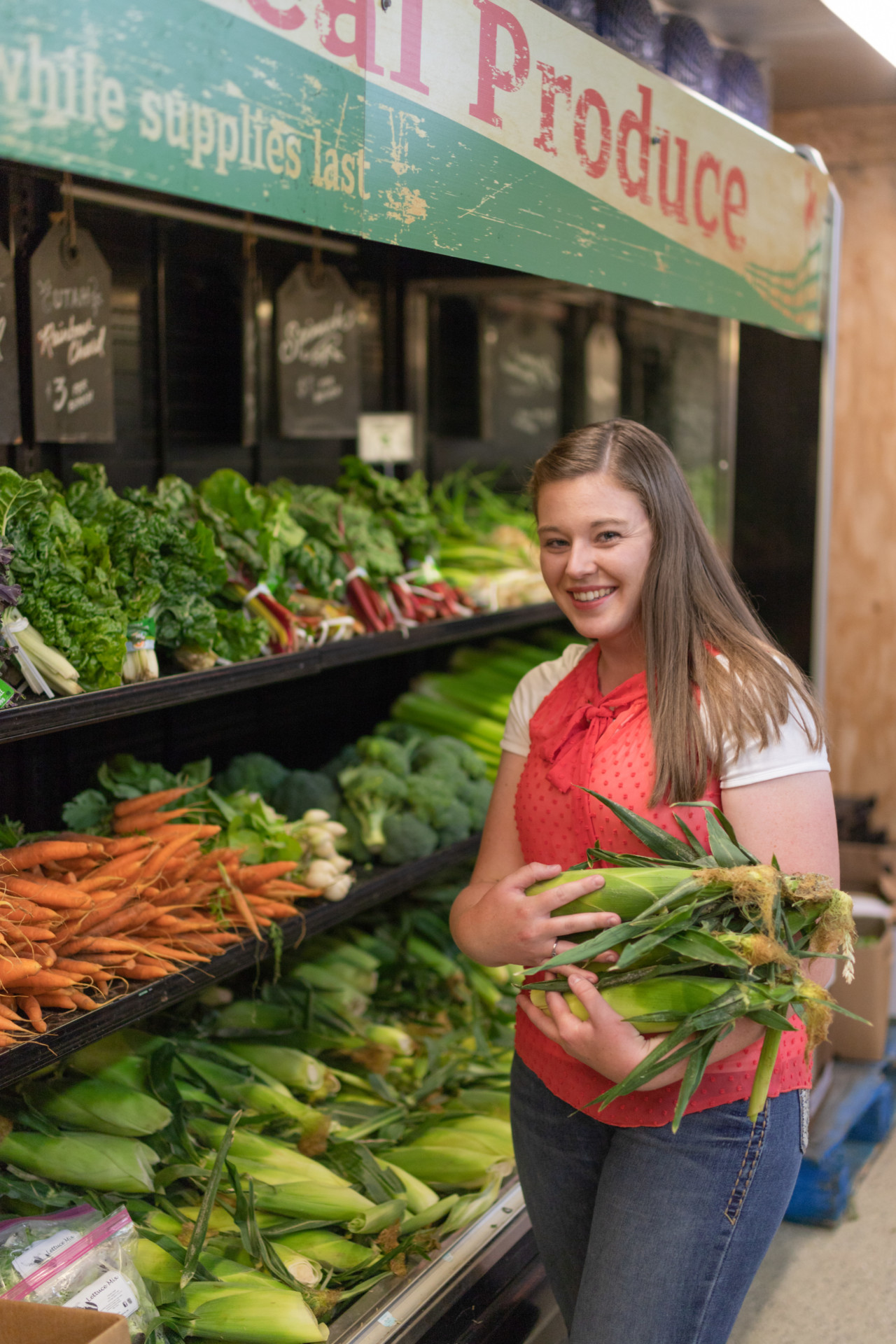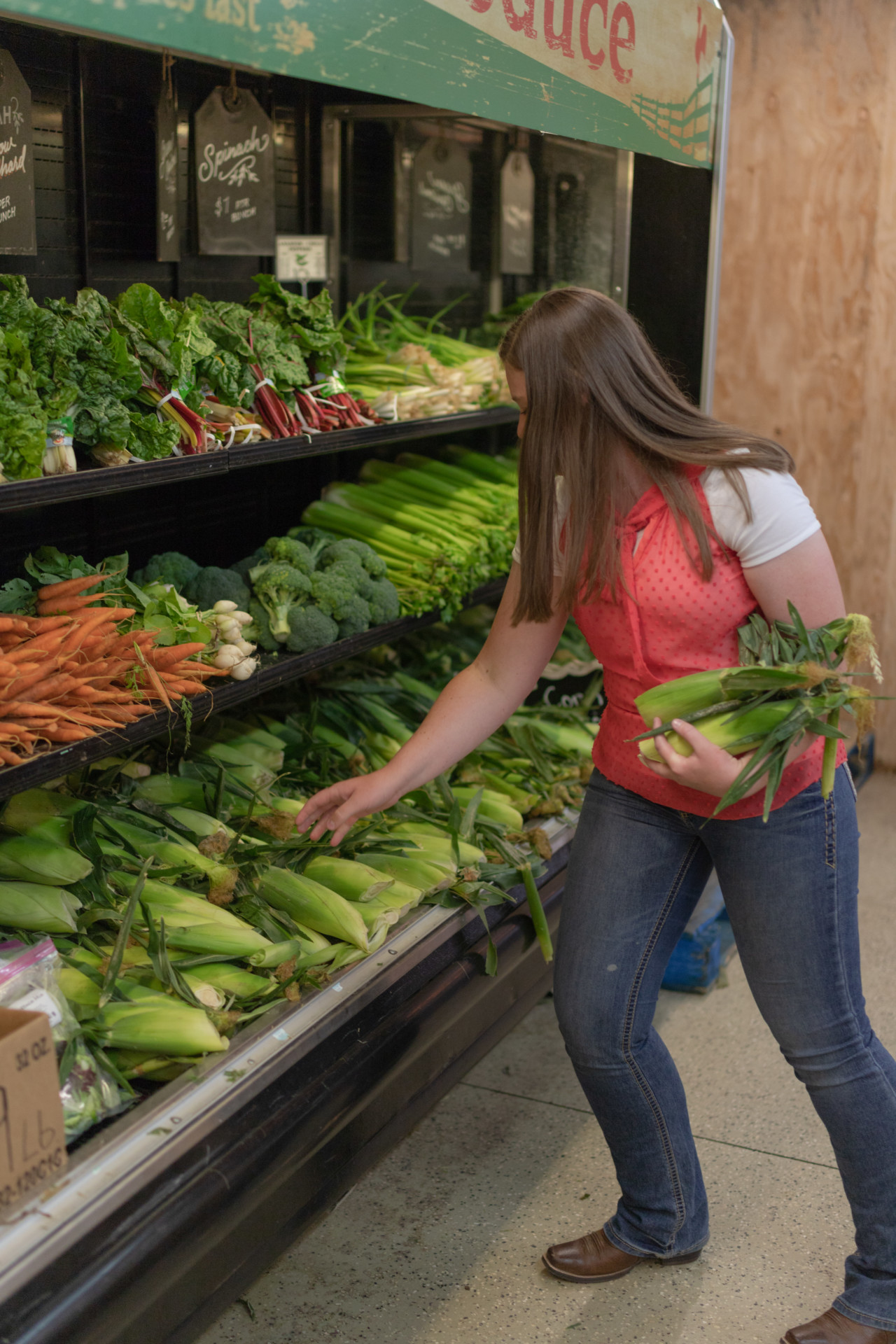Student Spotlight: Emily Rice

Each year the Office of Research chooses a few of our many exemplary Undergraduate Research Fellows to be Spotlight Students. We interview these students to learn more about their experiences as researchers and as undergraduate students at USU.
Emily Rice is involved in many different disciplines, as she has a dual major in Economics and Marketing, as well as minors in Horticulture and Political Science. She has received multiple scholarships, as well as being an active URF.
About You
Q: What is your name and where are you from?
A: I’m Emily Rice from West Bountiful UT
Q: What are your interests outside of school and your research?
A: Outdoors, fishing, hiking, gardening, cooking
Q: What is one fun fact about you?
A: I love the Uintah Mountains. I love to hike around them. They are beautiful.
Your Studies and Research
Q: What are you studying?
A: Double Majors: Economics and Marketing. Double Minors: Horticulture and political science
Q: How did you decide on so many?
A: I just took everything I liked and decided to study it. It’s easy if you enjoy it
Q: What is the focus of your research?
A: I work with the applied economics department with AG school. I focus on applying economics to farmers and their practices. This includes how they sell their produce, what their incentives are, stuff like that. I work with the applied economics department with AG school.
Q: What is your favorite part of your research?
A: I love being able to apply learning in more than one field. I can take all of my interests and apply everything to one single project. I love how applicable that is.
Q: When did you know what you wanted to study?
A: It was a process. I got lucky! I came to college as an Economics major without knowing what it was. I ended up loving it! I took some Horticulture classes for fun and ended up loving it. I really liked me political science classes because I really like history. I got into Marketing later on. I like how it applies economics to biological behavior.
Q: What led you to Utah State?
A: It just has a good feeling. Logan has a good atmosphere and a good culture.
A Typical Day
Q: Describe a typical day in the lab/field.
A: Desk work. I take data sets and analyze calculations. I make graphics so the data is a little bit easier to understand. Then I type up fact sheets for USU extension. Those fact sheets get published so that others can access that information.
Q: What skills or expertise do you have/are you growing through your research?
A: Data analysis, analytical software, Excel, Power BI, technical writing,
Q: What is your favorite thing about Logan/Utah State?
A: Access to the canyon. It’s not a big city. There is a community feeling about Logan and the University.
Q: What has been a valuable USU resource for you and your research?
A: Access through library to scholarly articles and magazines. I like having the ability to look things up and learn what is going on in my studies and in my field.
Mentor
Q: Who is your mentor?
A: Kynda Curtis, Agriculture and Food Marketing, Consumer Economics, Program Impact Evaluation. She is the extension specialist for applied economics.
Q: How did she become your mentor?
A: Finding a mentor was a process. I’ve been with her for a little over a year. The UR Director helped me to find her. She was on sabbatical in another country. I loved the work she was doing. I called her on the phone and she was eager to help me with my interests and with my research. She mentored me via phone for the first six months.
Q: What do you like about the collaboration process?
A: You always have some that is available to help with your questions. Professors sometimes get a bad rap, but they are very understanding and willing to help and they have your progression on their mind. They want to help you progress. Kynda was willing to help me not only in my research, but for other things as well. There was a service project I needed to do for a class and she got me in touch with the right people. She went out of her way to help me.
Q: What is one valuable thing that research has taught you?
A: It has improved my work ethic a ton. It requires me to be focused not only on academics and work but research as well. Helps me realize how my studies can apply to the real word. Which is difficult considering all that I’m studying.
Do you have any advice for new research students here at Utah State?
Look for the right fit with your mentor. It’s going to take some time, it’s going to be a process. You might work with people who are the wrong fit. You can learn from everyone, but look for the mentor that is right for you because it makes all the difference.




